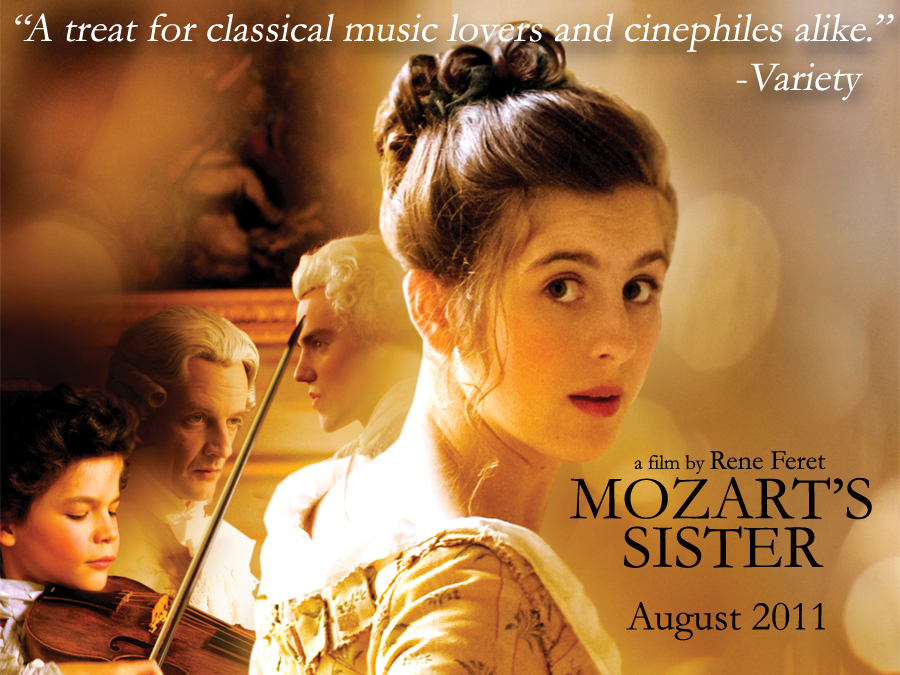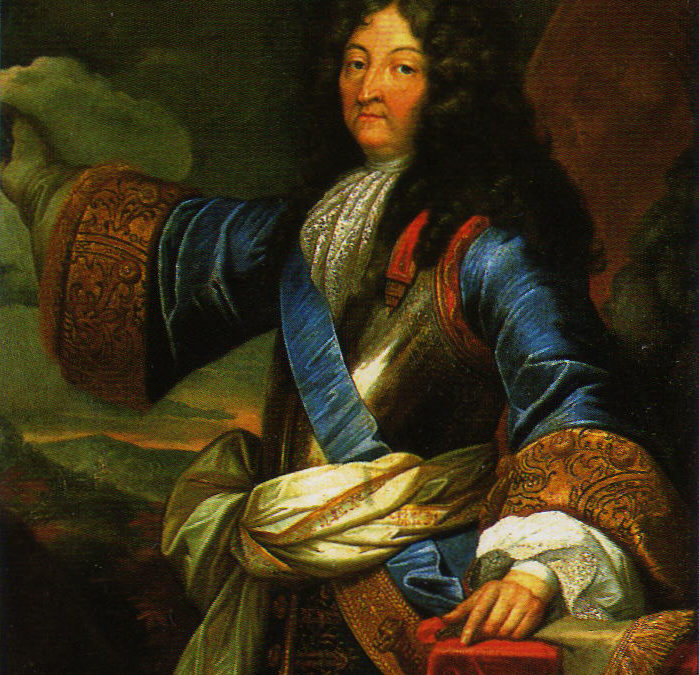by Sandra Gulland | Apr 20, 2012 | Baroque Explorations |

A friend recommended the historical movie Mozart’s Sister, which I also recently enjoyed.
It is based on the real-life Maria Anna Walburga Ignatia Mozart, nicknamed “Nannerl.” She’s a worthy subject: not only was she a talented singer and harpsichord player, but there’s evidence that she was a composer, as well. It’s a tragic story: in her necessary submission to her father and society, she must give up her talents and passions.
I thought the daily life details very well done in this movie — with the exception of lipstick and nailpolish! I wasn’t quite convinced that the actors and actresses were the ones playing their instruments, but I was happy to go along with the fantasy. The character of the Dauphin was memorable, as were all the members of the Mozart family.
It is one of those delicious French movies with long, poetic monologues: I do love these!
In short: I recommend it.

by Sandra Gulland | Mar 12, 2008 | Baroque Explorations |
It disturbs me that “fiction” is getting such a bad rap in the U.S. press, that publishers feel they can’t market a novel, but that a true story is okay, that readers hunger for “truth” and will pay for it.
Since when has memoir been held to documentary standards? Memoir is a story created from life. I write historical fiction, and in delving into the research, I’ve come to see quite clearly that historians write fiction, as well. The line between fact and fiction is fuzzy, always, and I don’t understand this urge to nail it down. Facts can be misleading, and fiction can be revealing.
Story is how we explain the past — our history — to ourselves. Story is a powerful tool, and it is story that sets us apart from the world of animals (at least insofar as we know!).
Yet I’m guilty myself, I know. I love that “wow” moment when reading historical texts, thinking: Imagine: this actually happened. I think the issue is not whether something is true or false, but the understanding, the contract that is created between the author and reader. The outrage is: “We have been misled.” Frey’s memoir was more fiction than fact, but was marketed as fact. Even so, I have trouble understanding the furor.
One of my first historical reveries was brought on by a diary I read of a Quaker young woman in 18th century England. I was swept away by this “true” account. On my next trip to London, I researched her life; it was there that I learned that the diary was fiction, a novel. I felt disillusioned, let down, but then thought: “What a good novel.” For it drew me into the world of the past in a very real way – and that’s what fiction can do that fact cannot.
SaveSave
SaveSave
SaveSave

by Sandra Gulland | Mar 12, 2008 | Adventures of a Writing Life |
I just posted to my research blog my thoughts on fact, fiction, and that messy realm in-between: “The fuzzy line between fact and fiction.” It’s certainly relevant here, as well.
Here is the blog:
It disturbs me that “fiction” is getting such a bad rap in the U.S. press, that publishers feel they can’t market a novel, but that a “true” story is okay, that readers hunger for “truth” and will pay for it.
Since when has memoir been held to documentary standards? Memoir is a story created from life. I write historical fiction, and in delving into the research, I’ve come to see quite clearly that historians write fiction, as well. The line between fact and fiction is fuzzy, always, and I don’t understand this urge to nail it down. Facts can be misleading, and fiction can be revealing.
Story is how we explain the past – our history – to ourselves. Story is a powerful tool, and it is story that sets us apart from the world of animals (at least insofar as we know!).
Yet I’m guilty myself, I know. I love that “wow” moment when reading historical texts, thinking: Imagine – this actually happened. I think the issue is not whether something is true or false, but the understanding, the contract that is created between the author and reader. The outrage is: “We have been misled.” Frey’s memoir was more fiction than fact, but was marketed as fact. Even so, I have trouble understanding the furor.
One of my first historical reveries was brought on by a diary I read of a Quaker young woman in 18th century England. I was swept away by this “true” account. On my next trip to London, I researched her life; it was there that I learned that the diary was fiction, a novel. I felt disillusioned, let down, but then thought: “What a good novel.” For it drew me into the world of the past in a very real way—and that’s what fiction can do that fact cannot.

by Sandra Gulland | Nov 29, 2007 | Baroque Explorations |
“Rabagas,” whom I know on a Sun Court list, has made an interesting post about his translation of a play by Ferdinand Dugue about the Duke de Roquelaure. What’s unusual about this writer’s work is that the subject is consistently of a father’s love for a child. This is a historical play set in the 17th century, and written in the 18th century, but even so, the perspective bears mention.
To quote:
It’s a really good play, and it deals, rather unusually for its day, with the rights of an adoptive parent versus those of a natural parent, and comes down firmly on the side of adoptive parent.
This is the 3rd play by Dugue that I’ve worked on… All three plays deal with a father’s love for his children … This is an unusual theme for the 1850’s and Dugue treats it with sophistication and care, in several different contexts.
So the question for me is: how did men feel about their children in 17th century France. I don’t believe it is possible to generalize. Louis XIV was an emotional man? There are a number of accounts of him giving way to tears in public and he is said to have broken down over the death of a newly-born infant daughter.
On the other hand, he was reportedly unmoved by the death of his teen-age son by Louise de la Vallière, but who knows what he felt, in truth. In piecing together historical realities, we are like the proverbial blind-men feeling an elephant, trying to describe the nature of the beast: it’s a tail, a trunk, an ear. We only have scraps of facts to go by, the rest must be left to intuition an informed intuition, but intuition none-the-less.





